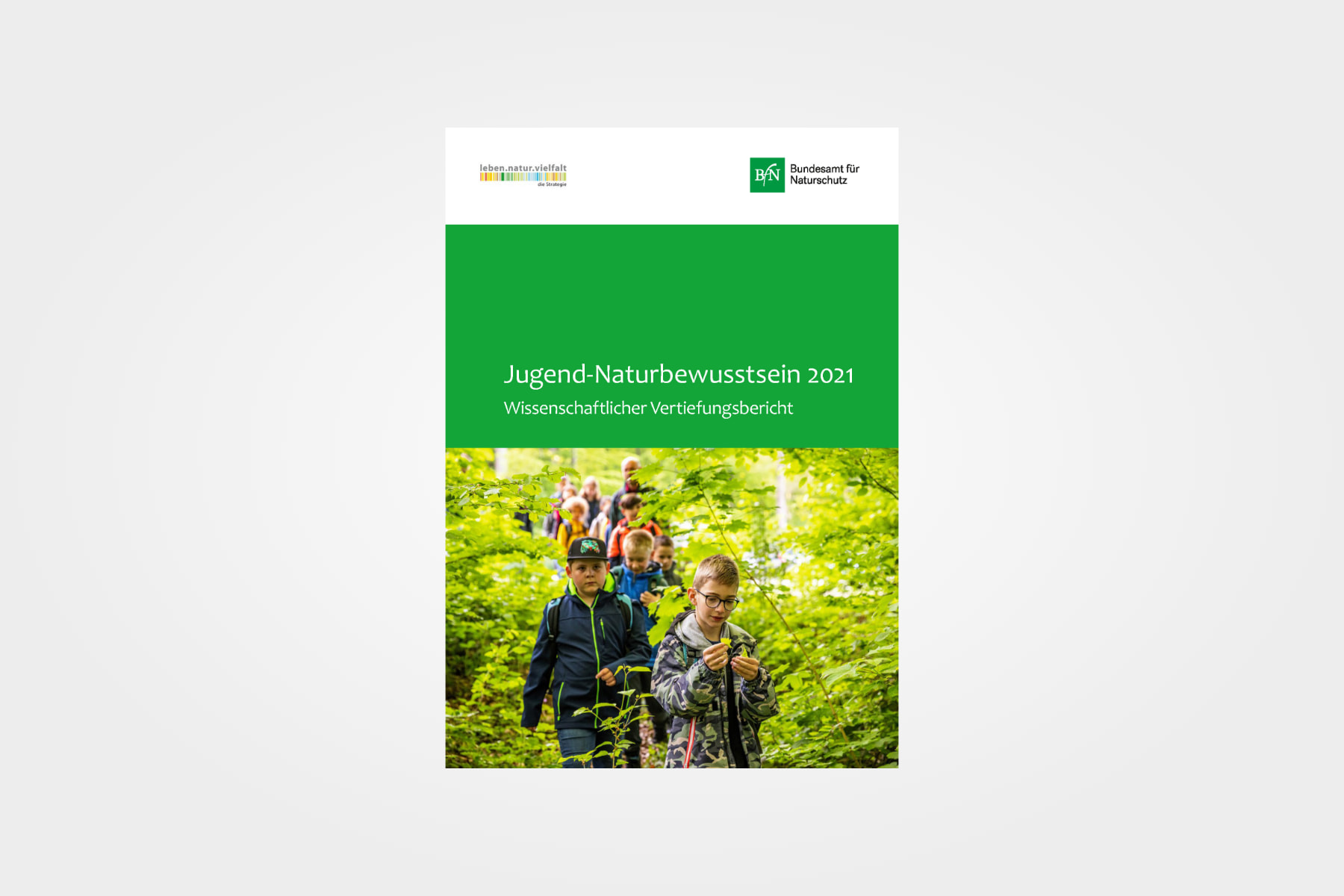Nature awareness of teenagers 2021 – in-depth scientific report

The in-depth report presents in-depth scientific analyses on youth nature awareness 2021. They are based on a representative survey on nature awareness among young people aged 14 to 17, which was carried out on behalf of the Federal Ministry for the Environment, Nature Conservation, Nuclear Safety and Consumer Protection (BMUV) and the Federal Agency for Nature Conservation (BfN) as part of the Nature Awareness Study 2021.
A direct comparison of the findings on adult awareness has already been made with the basic data brochure Nature Awareness. This new in-depth report also presents comparisons between different socio-cultural subgroups (age, gender, level of education, etc.) and young people's living environments (SINUS youth milieus), as well as some new questions that were not included in the adult survey.
Key findings include
- A small majority of young people are of the opinion that they are personally capable of working to protect nature and the climate (54%, of which 18% "completely" and a further 36% "rather"), but that more can be achieved together as a collective (70%, of which 33% "completely" and a further 37% "rather"). The conviction that more can be achieved together is particularly prevalent among girls (75%) and young people with a high level of formal education (76%), and less so among boys (65%) and young people with a low level of formal education (58%).
- Support for the energy transition remains high with a clear "yes" from 64% of young people in 2021 (first survey in 2020: 66%). Full approval of the energy transition is related to the level of education (low: 57%, medium: 56%, high: 70%), and also to the size of the location: interestingly, approval is highest among young people in rural areas with a direct link to the production of renewable energy (under 20,000 inhabitants: 74%), and lowest in large cities (100,000 to 500,000 inhabitants: 57%).
- Young people are clearly aware of the decline in insects both worldwide and in Germany (worldwide: 76 percent, of which fully agree: 45 percent, somewhat agree: 31 percent; in Germany: 70 percent, of which fully agree: 40 percent, somewhat agree: 30 percent). The perception of the decline in insects is
